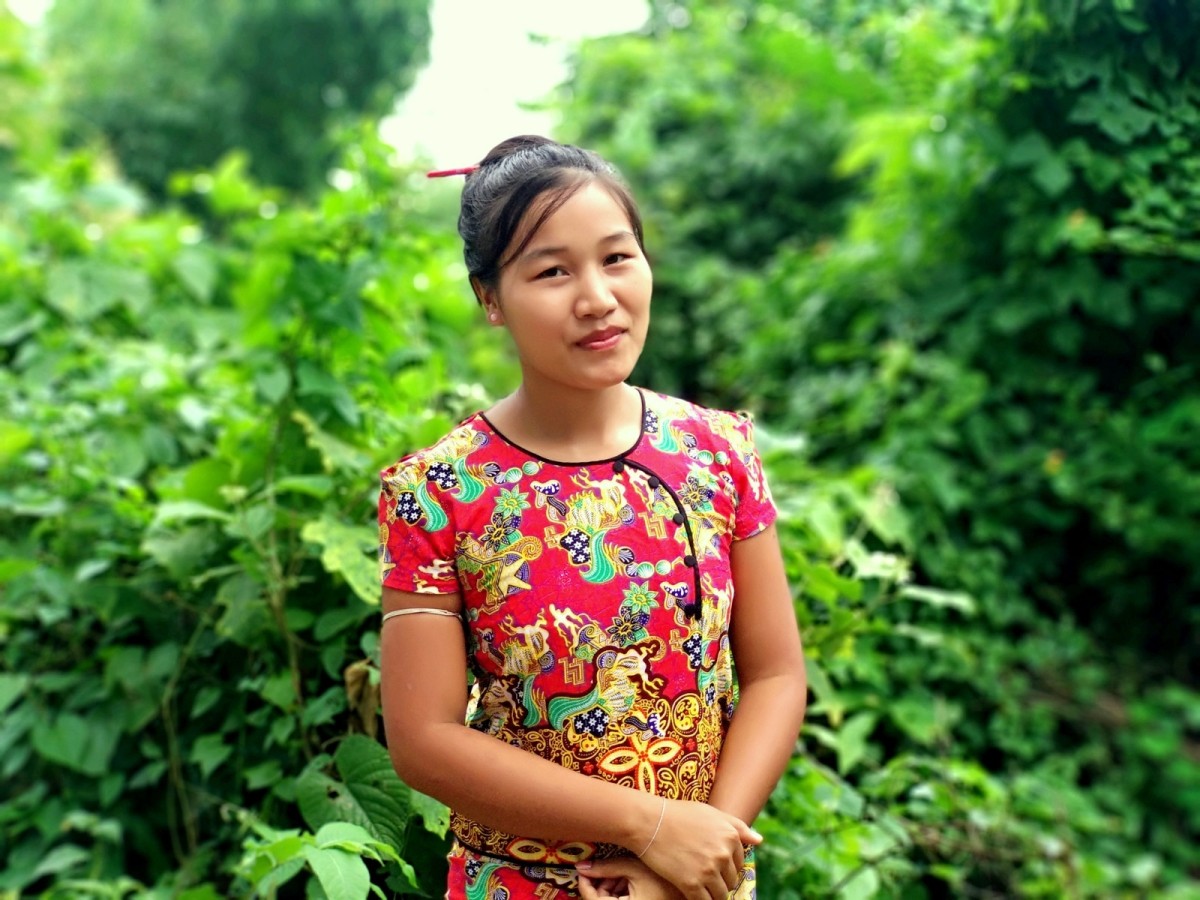May Kyana Marma
This is May Kyanu Marma. Currently, she is in the third year of her study in Bengali literature and in her free time she enjoys weaving. May belongs to the ‘Marma Community’ and she deeply cherishes their culture: “I celebrate the culture and festivals of my community with great love.”

May lives in the Chittagong Hill Tracts (CHT), an area in Bangladesh, that houses the indigenous Jummas (11 ethno-linguistically and religiously diverse people). There are various tribes in this area, such as the Chakma, Marma, Tripura, etc., who differ from the Bengali majority of Bangladesh in their language, culture, physical appearance, religion, dress and farming methods. The indigenous peoples in this area face discrimination, assault and violence by both Bangladeshi security forces and Bengali from other parts of the country.
Great challenges
Especially, women and girls in the Chittagong Hill Tracts often face great challenges and have a vulnerable position. Traditional patriarchal social structures in the area severely disadvantage women and girls and restrict their bodily and sexual autonomy. Together with the prolonged conflict between the Bengali and Jummas, this increases their exposure to sexual violence and assault.
Girls' clubs to create a safe space
In the Our Lives, Our Health, Our Futures programme, funded by the European Union, we work towards more safety and health for girls in the CHT. Simavi is forming girls’ clubs in these communities. The aim is to create a safe space for the girls, where they come together and learn about their sexual health and reproductive rights (SRHR). The groups will be anywhere from 10-20 girls and they will have session run by a female mentor from the community.
May as a mentor
May is also to be trained as a mentor for the girl’s club in her community. “When I found out that a programme on adolescent girls and young women would operate in our area and there were opportunities to work as a mentor, I started dreaming. As an indigenous people we are often left behind and the reasons for this backwardness are deeply rooted in the society. This hurts me very much. My involvement in the programme will help me develop my personal skills and capacity in thematic areas, as well as raise awareness about sexual health. I can help to build a healthy life for the girls and women here.”
“My role as a mentor is to play a role in empowering and encouraging indigenous girls and young women in my area. To make them aware of their rights as a woman."
“My role as a mentor is to play a role in empowering and encouraging indigenous girls and young women in my area. To make them aware of their rights as a woman. In our society, there are many prejudices and stereotypes about women’s health care and menstruation, which are tied to the overall development of a women’s life. I believe we can sharpen the voices of girls and young women to assert their rights and empower them to make important decisions about their own body. Their voices need to be heard!”

